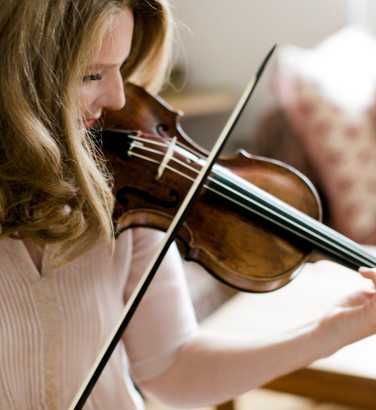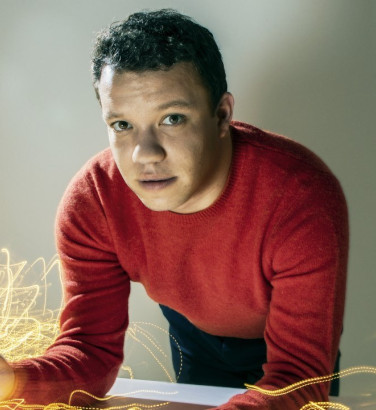
Richard Egarr on Bach's "sacred monument for mankind"
4 Sep 2023
News Story
It is always a pleasure to welcome back Richard Egarr, a favourite of both the Orchestra and SCO Chorus. He conducts Bach's B minor Mass next month - a piece so monumental that it can seem a little daunting to anyone unfamiliar with it, but you can depend on Richard to draw out both its grandeur and the sheer joy of Bach's inspiration.
By way of introduction to the concerts, we are delighted that Richard agreed to a short interview.
Bach put the B minor Mass together mostly from older works, as a showcase for his skills as a composer (and a testament to his faith). Considering its movements come from so many different sources, what do you feel makes it hang together so convincingly as a whole?
Even though the B minor Mass is a ‘Frankenstein’ composition, whenever Bach transplanted music, or stole from himself to create new works, he never did it without some small (or sometimes quite large) changes. He made these precisely to allow the new composition to hang together, an ability Bach shared with Handel – and that is real genius.
Are there any particular parts of the Mass you always look forward to in performance?
This is so difficult to answer – the whole thing is so extraordinary. I think that the opening Kyrie is totally transcendental (particularly if you take it at a slow speed, called for by Bach marking it Largo, which for him meant slightly faster than Grave ... very serious and slow). Also, the feeling of pure cathartic glory during (and after) the final Dona Nobis is almost unique – and is only seconded by the closing Amen of Handel’s Messiah.

The 'transcendental' opening of the B minor Mass, in Bach's handwriting
Does it matter that it has never really been suitable for liturgical use, as much as we can enjoy it in concert today?
This work, along with other late works of Bach such as the Art of Fugue and the Musical Offering, was designed for posterity, and therefore reach beyond any mere act of specific performance. In practical terms performing the Mass is a bit unhandy, particularly in the way he has designed the use of the choir. Whether you advocate small or large vocal forces, the problem of how to negotiate the change from 5-part choir [up to the end of the Credo] to 8-part (2x4) choir [for the Sanctus and Benedictus] is tricky in a purely practical sense – how do you position the voices, and how do they change those positions? I am sure Bach had no real expectation of liturgical performance. He was interested in leaving this untouchable masterpiece as his sacred monument for mankind.
The 2023/24 Season marks the SCO’s 50th anniversary. What are your abiding memories of working with the Orchestra?
I have always had a wonderful time working with this fabulous group of musicians and its organisation. It continues to go from strength to strength. It is musically so flexible and versatile, with members who are totally committed to what they do, and are always interested in investigating the new, and old!
Looking ahead to the next fifty years, is there any repertoire you’d particularly like to explore with the SCO?
I have enjoyed being able to lead a wide and varied repertoire with the SCO. I hate being pigeonholed as an ‘Early Music Specialist’. I am interested in Music, and have always performed a very wide range of stuff. The SCO has always given me that opportunity, for which I am so grateful. We have done repertoire from Castello (1629) to Ives and John Adams, with all sorts in between. I look forward to many more musical mashups in future years.
Related Stories
![]()
The Great Grumpy Gaboon: a chat with Jay Capperauld and Corrina Campbell
30 December 2024
What is a Gaboon, and why is it grumpy? We chatted to the creators of our new Family Festival to find out ...![]()
Rachel Podger: "I'm especially fond of the Polonaise in the First Brandenburg Concerto"
9 December 2024
The feted British violinist talks to us about her love for the Brandenburg Concertos and more.![]()
Ryan Bancroft: "a conversation with the leader of a Finnish orchestra changed how I heard Sibelius"
30 September 2024
We speak to conductor Ryan Bancroft about music from (his not quite native) Scotland and Scandinavia.


